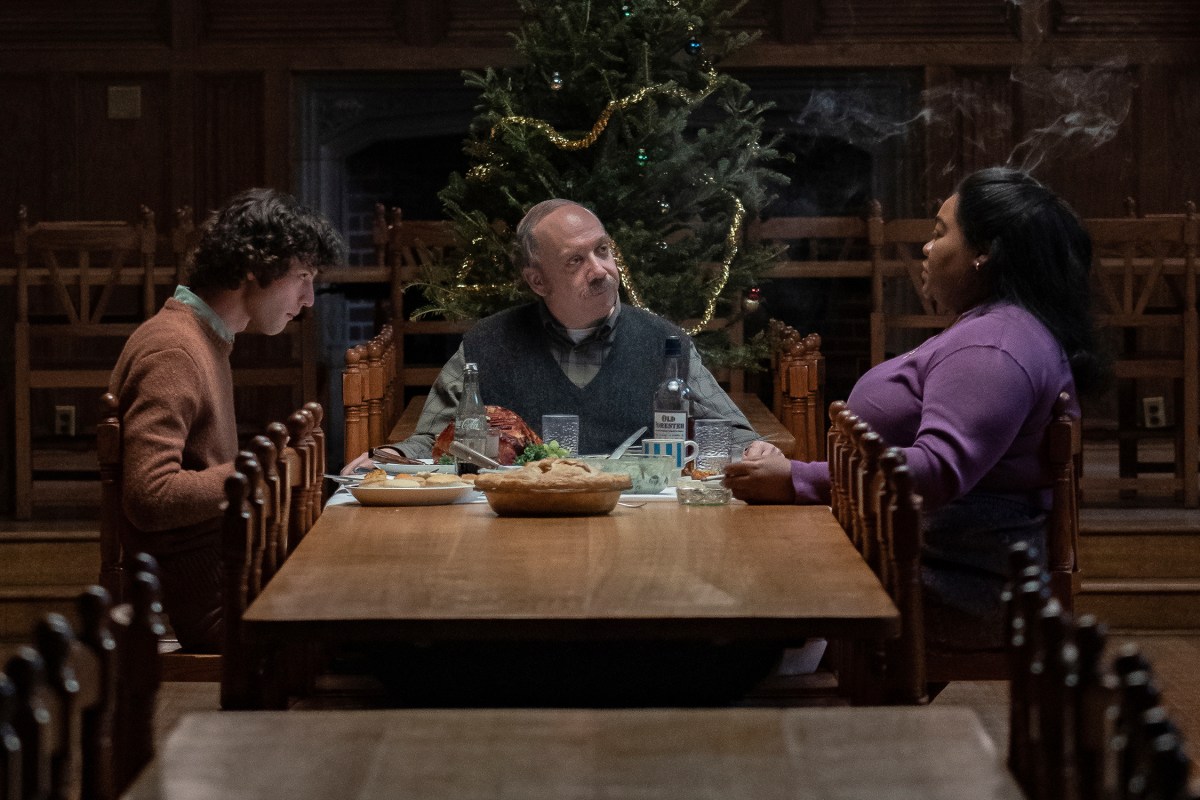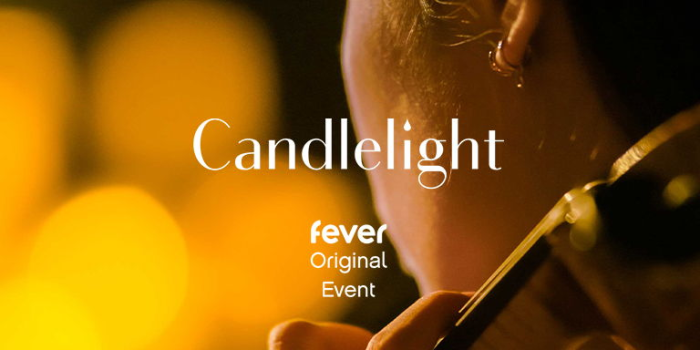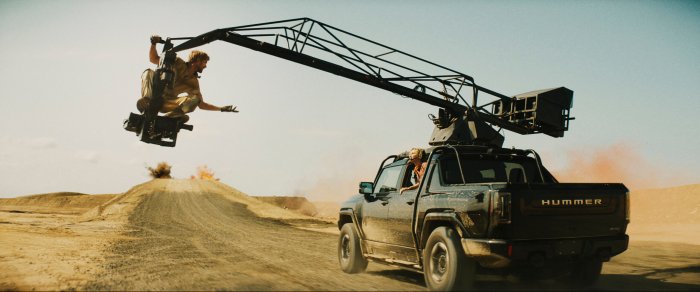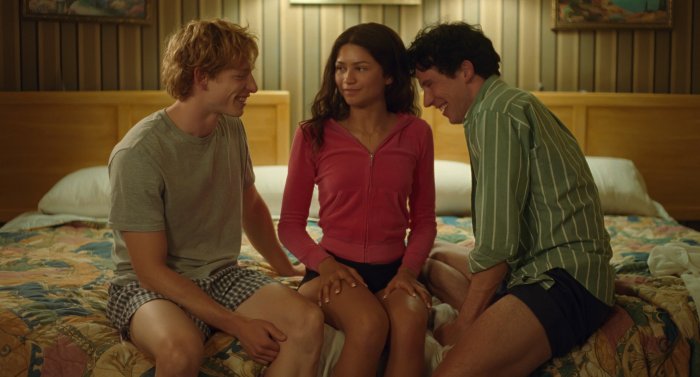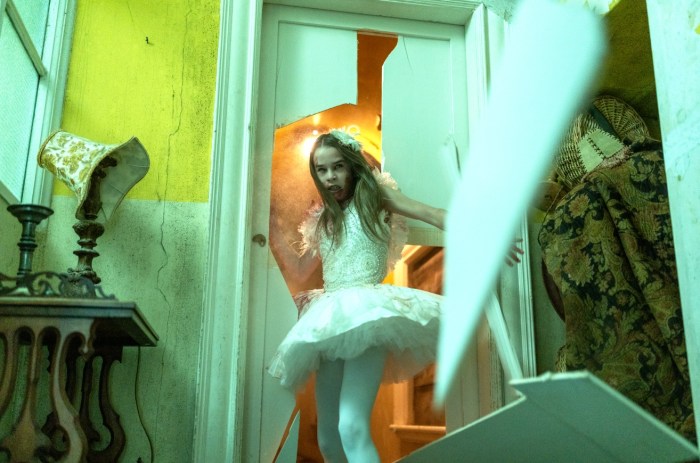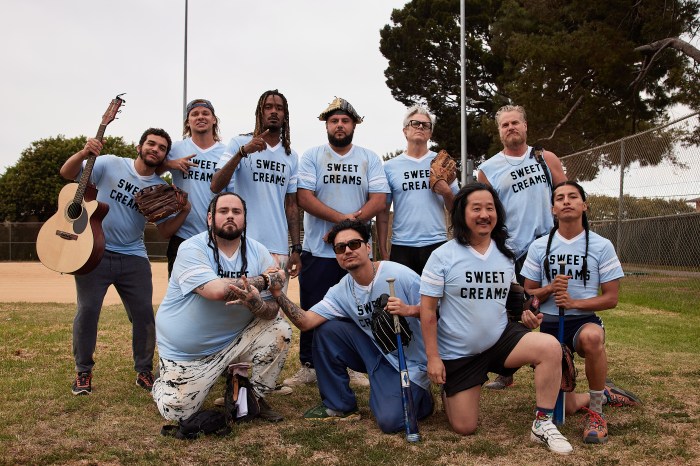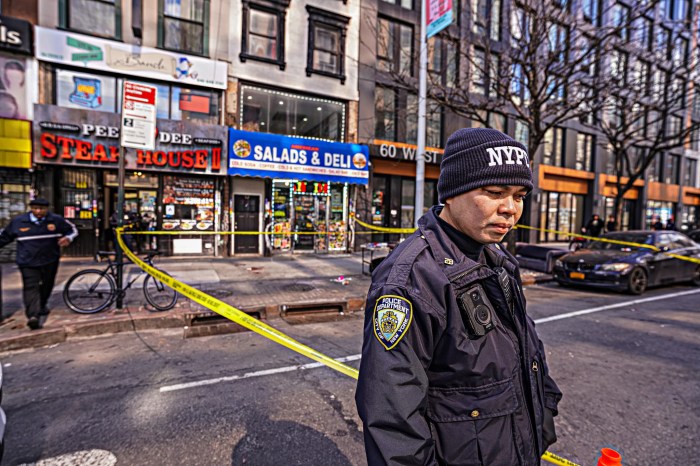By JAKE COYLE AP Film Writer
The great films of the 1970s have long loomed in the imagination of filmmakers raised during one of the most fertile periods of American movies. But Alexander Payne wanted to take it a step further.
Payne’s latest film, “The Holdovers,” isn’t just set in 1970, it seeks to imbibe the humanistic spirit of films like “The Last Detail,””Harold and Maude,” “The Landlord” and “Paper Moon” — all movies he screened for his cast and crew.
“We were very fully making a ’70s movie,” Payne says, recently speaking by phone from his desk in Omaha, Nebraska.
Payne, 62, shot “The Holdovers,” set at a New England boarding school, largely with filmmaking equipment and camera lenses from that period. He mixed it in mono. “We were trying to play the exercise of: We are in 1970 making this movie,” he says.
“The Holdovers,” which Focus Features will release Oct. 27 and expand on Nov. 10, is Payne’s first film in six years and it’s one of his best. Payne, the filmmaker of “Election,””Sideways” and “The Descendants,” has long made “the kind of films they don’t make anymore” — smart, funny, melancholic dramas for adults. And yet he’s kept making them. After decades of making contemporary films that in some way evoke a ’70s sensibility of cinema, he’s finally made the genuine article.

“I was just trying to replicate the experience of the movies I love as much as possible,” says Payne. “I don’t think it makes the movie quaint. I hope it lends it the warmth of nostalgia, the warmth of a lost time, maybe even some traces of memory.”
“The Holdovers” reunites Payne with Paul Giamatti nearly two decades after the actor’s memorable, merlot-loathing breakthrough performance in “Sideways.” This time, Giamatti plays a curmudgeonly Barton Academy classics teacher named Paul Hunham tasked to stay at school with a handful of kids without family plans over the Christmas break.
The set-up could be broad: a gang of outcasts and troublemakers sneaking joints while the widely loathed Hunham chases them down the halls. And while there is some of that, Payne pares the group down to Hunham, Angus (Dominic Sessa), a bright student who’s one mishap away from being sent to a lesser school (and thus likely to Vietnam) and Mary (Da’Vine Joy Randolph), a grieving school cook whose son has recently died in the war.
Something remarkably tender and stirring follows. Digging into each character’s life, “The Holdovers” ruminates on privilege in class and race, while steadily building an anti-authoritarian streak for the much-espoused supposedly high-minded ideals of Barton.
If Giamatti’s “Sideways” character — a lonely unpublished writer with a manuscript no one wants to read — was in need of a road trip to jostle him out of a rut, his Hunham is likewise due for some self-reflection and maybe a little encouragement.
For Payne, it was a long-overdue reunion.
“I wanted to work with that guy again for 20 years,” he says. “I was waiting for the right thing — and created it. I told (screenwriter) David Hemingson: ‘We’re writing for Paul Giamatti. That’s who we’re writing for.'”
“He’s just the best actor,” adds Payne. “He’s the finest actor. Not casting aspersions on others, I just think there’s nothing he cannot do.”
When Payne screened “The Holdovers” for buyers at last year’s Toronto International Film Festival, it prompted heated interest. Focus snapped it up for $30 million — far more than is typical — a sign of the indie distributor’s belief in the movie as a crowd-pleaser and an awards contender. The three lead actors are likely to be in the Oscar mix.
As ’70s-oriented as making “The Holdovers” was, it struck Payne as a contemporary story, too. “Trump years and Nixon years,” he says.
“Gravity led me and my collaborators to 1970 for some reason. I can’t necessarily articulate it,” Payne says. “It’s obviously not a message film or any crap like that. As Marx would say, all films are political films.”



